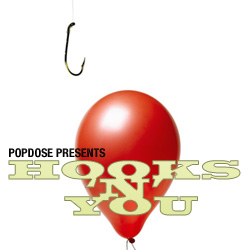
When you hear the name “Don Dixon,” you’re probably more likely to think of him in terms of his production career than for his accomplishments as a singer and songwriter … and for those who have thrilled to each and every album in his oeuvre, it’s starting to get really annoying. Not that there isn’t a ton of work amongst his past efforts as a professional knob-twiddler to make him legitimately legendary in his field, but there’s just so much more to the man than that. Next week, Jon Cummings and myself will be providing ample proof of that, when we perform our first collaboration and offer up The Popdose Guide to Don Dixon, but for now, I thought I’d ease you into his work by discussing the best … okay, only … single-disc anthology of Dixon’s work: the obscurely-named (If) I’m a Ham, Well You’re a Sausage: The Don Dixon Collection.
(Actually, the title makes sense … more or less … within the first 30 seconds of the album, but until then, you’re allowed to go, “What in the hell does that mean?”)
If you know Dixon’s solo work at all, then you’re probably familiar his lone semi-hit: “Praying Mantis.” (There’s a video for it somewhere, because I definitely remember seeing it on “120 Minutes” at some point or other, but apparently it’s become so obscure that it’s not even on YouTube.) The track was definitely a highlight of his Enigma-Records-era releases, but as this collection quickly demonstrates, catchy pop tunes were plentiful within the grooves of everything he released during that time period. It’s no wonder that bands like R.E.M., the Smithereens, Guadalcanal Diary, and The Connells were drawn to his production methods; Dixon himself could jingle and jangle with the best of them, having been playing along with the guys in Arrogance throughout the ’70s and early ’80s before going it solo. Indeed, a couple of the tracks which ended up on his solo records were actually Arrogance tracks … including “Praying Mantis”!
Dixon’s blend of pop, rock, blues, and even gospel is very well documented on (If) I’m a Ham, Well You’re a Sausage: The Don Dixon Collection, though – as you’ll see next week – it doesn’t come anywhere near telling the entire story of his career. It is, however, a fun-filled testament to the man’s ability as a performer and songwriter as encapsulated in 16 tracks … well, technically, it’s 18, but two of them only serve to show that, even at age 8, the man was a regular comedian.
I had a fantastic freewheeling conversation with Don this morning … with occasional off-phone contributions from his wife, Marti Jones … and, believe me, the word “conversation” is definitely more appropriate than “interview,” as you’ll soon see. He and I struck up a casual E-mail friendship a few years ago after he noted his appreciation for a couple of reviews that I wrote of his more recent releases, so when I asked him if he’d be up for assisting me with this column, he graciously agreed … and if you’ve ever wondered if he’s really as laid back as some of his songs would have you believe, I should mention that, when he provided me with his phone numbers, he offered them up as “kitchen” and “pocket.” He is not, however, above screening his calls a bit, as I discovered when he picked up as I was leaving a message on his answering machine:
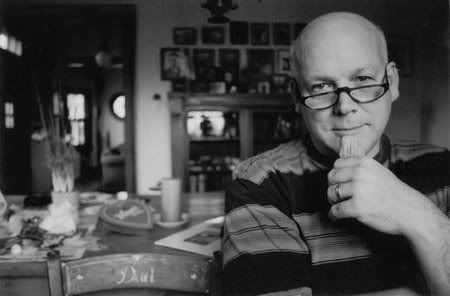
Don Dixon: Good morning!
Popdose: Hey, there he is!
DD: Yes, I was not away. I was writing an E-mail, and I didn’t recognize “Jennifer Harris,” and I didn’t want to be stuck on the phone with some friend of Marti’s.
PD: Actually, I’m less surprised that it came up with her name than I am that it came up with a name at all, since I’m using a calling card.
DD: (Laughs) No problem. I just wasn’t sure who Jennifer Harris was.
PD: Well, she’s my wife, and she wanted me to tell you that she still has fond memories of the house concert by you and Marti that we attended at Jim Morrison’s house, in Norfolk.
DD: Oh, great! Yeah, that was fun. He had the big tent up and everything! Is he still doing his concerts?
PD: Honestly, I haven’t talked to him recently. I should drop him a line, though I’ll probably actually see him at the Billy Bragg show in Norfolk on Oct. 30th. I can’t imagine he’s going to miss that.
DD: Oh, yeah, I knew Billy was around, because I think he’s doing a Mountain Stage or something. Larry (Groce) was up here, we were finishing a hymn album that he’s doing for the Christian Science church. He’s not really a practicing Christian Scientist anymore, but they still love him, and these records that he made for them when he was younger are still hugely popular, and he loves hymns. When I was growing up, I learned a lot about harmony and stuff like that from reading the hymn books in church when I was a little boy. It was a lot of fun. There are a lot of strings, there are some songs that are just dulcimer and him singing, and some of them have 12-strings on them, so it’s a very broad little record, straight out of a hymn book, pretty much.
PD: Nothing wrong with that, especially if it sounds good.
DD: Oh, no, not a bit. And we also did it at … he’s got a big Victorian house down in Charleston, West Virginia, and we recorded the whole thing in his parlor, so we tried to give it a parlor atmosphere.
PD: So how’s everything going with you?
DD: Good. You know, same old shit. I haven’t changed jobs since I was 15. I pretty much just make up songs and sing “Ëœem, and help my friends record the songs that they made up. That’s pretty much my job.
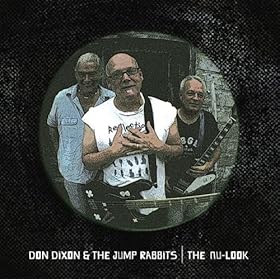
PD: (Laughs) Well, I’ve really been enjoying The Nu-Look.
DD: Oh, good, thanks! It’s a fun little record. We toured a lot this summer, especially by my standards, but it was a tough summer. We just didn’t reach as many people as we wanted to. But we had great shows, the band sounded great, and it was really fun to sort of build a record from scratch with those two guys, who I’ve been playing with for so long. It’s fun. And I’ve been doing so many solo shows behind Combustible World, just out of financial necessity as much as anything, but also sort out of a desire on my part to play solo and get better at it. So it was fun to just go out with a band and just be an idiotic rock person for awhile.
PD: When ya’ll created the set list for The Nu-Look, how did ya’ll go about doing that, given the unique mix of covers?
DD: You know, my whole idea … I can’t remember if I tried to explain it in the booklet for the record or if I was just explaining it in an interview or something, but I really loved the way The Entire Combustible World came out, but it takes me a long time to write songs that I care enough about to sing if I’ve written them … whereas I don’t give a fuck about what somebody else says. I’ll sing anything, but I don’t want to have to stand behind the words of the more naÁƒ¯ve, fun songs that I like to sing. So I just started thinking, without really doing any research or anything, about old songs that I liked but really hadn’t been done much, that people didn’t really know but that we would have fun doing and would make for a good rock set. And that was really the genesis. The first thing I did was teach the guys “300 Pounds of Joy,” which is a song off of an obscure, late “Ëœ60s Howlin’ Wolf album. Do you remember a record that Chess made with Muddy Waters called Electric Mud?
PD: I’ve read about it, but I’ve never actually heard it.
DD: Well, Electric Mud was this sort of attempt at the British backwash of blues, sort of a psychedelic fuzzy guitar record. So they used the same bunch of guys, and they did the same kind of thing with Howlin’ Wolf. It’s just called The Howlin’ Wolf Album, I think, and the cover is just black and white — white with black letters — and says something like, “Howlin’ Wolf doesn’t like this record. He didn’t like his first electric guitar at first, either.” I think that’s what it says. And then there’s a great picture of the Wolf on the back, and Wolf talks on it a little bit. It’s a very interesting record, but it’s got this version that we pretty much ripped off the riff from … (Reproduces the riff vocally) … and, of course, they have, like, saxophones playing through guitar amps and stuff. It’s a very cool record, though, if you ever get a chance to listen to it.
PD: What’s funny is that the reason *I* knew the song was that Tom Jones and Jools Holland recorded a version of it on a collaborative album they did a few years ago. (Writer’s note: It’s worth noting, however, that Tom’s ego apparently necessitated a change in the song’s title to “200 Lbs. of Heavenly Joy.”)
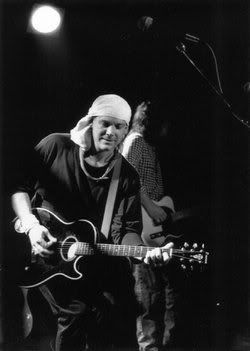
DD: Wow! And somebody else wrote me right away, saying that they’d heard … I don’t know who it was, but some young rock band had also done it. What’s Jools’ and Tom’s version like?
PD: Not too surprisingly, there’s a lot of pounding piano in it. It’s a lot of fun.
DD: I love Jools Holland and Tom. I know Squeeze was just touring some. Did Jools play with them on that tour?
PD: No, I think he’s pretty much stepped out of the band for good now.
DD: Yeah, I knew he hadn’t been in the band for awhile, but I didn’t know if he’d come back or not.
PD: No, his full-time gig is keeping him so busy that I guess he’s not interested in revisiting Squeeze.
DD: Paul (Carrack) wasn’t with them this time, was he?
PD: No, it’s just Glenn, Chris, and then the rest of the band is made up of Glenn’s band, the Fluffers.
DD: Yeah, I knew a lot of it was Glenn’s band. I like Chris’s new record, by the way. I’ve only heard about six songs off of it so far, but “Fat as a Fiddle” is very funny.
PD: I liked the album before that as well. He’s really carving out a nice little niche for himself.
DD: I completely missed that one, so I’ll have to check that out.
PD: He does some co-writing on there with Francis Dunnery.
DD: Why do I know that name?
PD: He’s another singer-songwriter. He used to be in a band called It Bites years upon years ago, but he’s been solo for ages.
DD: I feel like I might’ve met him at some point, but I’m just not making any connections. Wait a minute, is he English?
PD: Yep.
DD: I think he just produced my friend Soni (Jim Sonefeld), from Hootie and the Blowfish, and he now lives in the United States somewhere. Northeastern Pennsylvania, maybe? Well, anyway, yeah, Francis, now I know exactly who you’re talking about, “Ëœcause Soni’s got this new record called Melting Snowman, and it’s very odd, “Ëœcause it’s almost like Philly soul.
PD: I can get behind that.
DD: It’s worth listening to. He’s probably got a MySpace page or something. I talked to him the other day, and I gave him a little bit of shit about it because he’s got one song that ought to be a monster beach music hit. It’s the fourth track, I think, but I can’t remember what it’s called. But that’s the advice I gave him. I actually called him up to give him the names of some radio stations down in South Carolina that have high-end beach music shows. I said, “I know you don’t want to tour, but if you could have a beach music hit, it’d give you at least three weekends worth of work.”
PD: Hitting the “shag” circuit, as it were.
DD: Exactly.
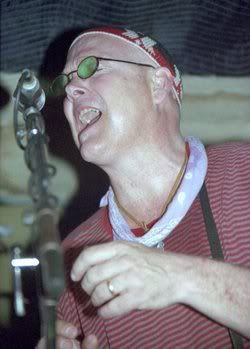
PD: Well, the plan of action for our conversation is to talk about your greatest-hits album, and then one of our other writers, Jon Cummings, is going to put together a Popdose Guide to Don Dixon.
DD: You’re actually going to do a column about (If) I’m a Ham, Well, You’re a Sausage? (Laughs) Okay, cool!
PD: Well, I figured I’d spotlight that record so I could tackle individual songs, and then before I get off the line, I’ll get you to give me a one-liner about each of your albums, and Jon will write up his own synopsis of each one, too.
DD: Just as long as he says something nasty.
PD: I can’t make any promises, but I’ll assure him that he needs to be critical.
DD: Let him know he can be as nasty as he wants to be. Tell him to take me to task on my slack-ass life!
PD: (Laughs) So what was your reaction when Enigma / Restless came to you with the idea with doing a greatest-hits album?
DD: Well, you know, it was a little bit weird when it happened, and I’m trying to remember what the catalyst was. I think the catalyst was … (Hesitates) What was it? Because it was a long time ago! It was … 1991? 1992? It definitely had something to do with Enigma’s being restructured. They had kind of partnered more closely with Capitol at that point and tried to expand. There was a new guy there, and I think it was the new guy’s idea, and I’m not sure whether it was just his way of trying to get “Praying Mantis” back to radio or what he was thinking, because at that point, I had … what did I have? I guess it’s a culmination of all of my Enigma records, so maybe my contract was up.
PD: That was the last thing you did for them.
DD: Yeah, so it was probably something to do with my contract being up, and they were trying to get a record in, one that they were allowed to do before I split. I don’t know. I mean, we weren’t antagonistic about it at all. I helped them figure out what to do; I helped pick the songs. They did another one that never came out … (Laughs) … that included a whole bunch of stuff from Sugar Hill, too, so it was a more comprehensive one. I don’t know what happened with that one. That was right before Bill Hein left. They had given all of their money to some rap guy.
PD: (Laughs)
DD: No, they did! I don’t know if you did, but they went through this kind of thing where they signed one of these big, giant things and gave some rap guy, like, a billion dollars, and then went quietly into the night. But, anyway, my reaction was, “Uh, okay. Is this something that we have to do?” That was my reaction. I don’t think anybody had the courage to refer to it as a greatest-hits album; I think it definitely was always just a collection of songs that somebody liked more than others.
PD: Well, I did make air quotes when I used the phrase. You couldn’t see it, but I did.
DD: (Laughs) I heard the inflection. And, y’know, I think … I just don’t really have any idea why they wanted to do that. And it could only stem from some sort of economic angle, or the idea of maybe trying to work “Praying Mantis” yet again.
PD: I guess it’s only appropriate, then, that the first song I ever heard by you was “Praying Mantis,” on the Enigma Variations, Vol. 2 album.
DD: Yeah, and, I mean, “Praying Mantis” was great, and it was fun, and I wrote that song to be exactly what it is, but you’ve gotta remember that that recording, even, was made in 1981, and it is Arrogance. That whole song and recording was made by us in 1981. Maybe 1982. But it was just one of our demos that we were doing to try and get a new record deal. That’s what Arrogance sounded like when we broke up: like “Praying Mantis.” I had no intentions of ever putting any of this stuff out. The only reason Demon picked me up in the first place, and this other little … well, actually, kinda big Scandinavian label called Mega, was because my publisher happened to play this for some people, and then this lawyer friend of mine licensed it to Europe. I was just completely content with Europe and had no intentions of ever putting anything out in the United States until Bill (Hein) ran into me at the Amsterdam airport, came over and introduced himself, and said, “I want to put your record out.” And I said, “Well, tell me something about your label.” And when I found out he had the Ugly Janitors of America, doing “Blind Man’s Penis,” and he had Stryper, it was hard to resist. (Laughs)
PD: If that’s not a one-two punch, I don’t know what is.
DD: Exactly. “That’s the kind of eclectic label I want to be associated with,” I thought, and I think I was right. I loved that label back then.
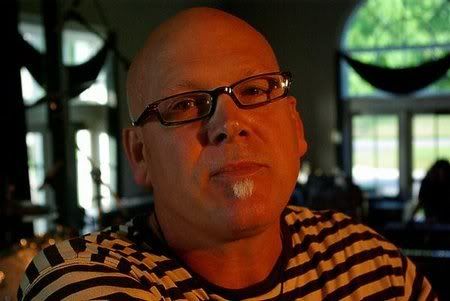
PD: One of the songs on the collection of “Teenage Suicide (Don’t Do It),” your contribution to the soundtrack of “Heathers.” How did that come about?
DD: Well, it was weird. They called me up to get me to sort of do the whole soundtrack, and I went out to L.A. and saw an early cut of the movie, talked to the director, and … they already had this kind of interesting synthesized soundtrack. And there’s really not much room to … what they wanted me to do was help them license and pick out a bunch of songs and do a “Pretty in Pink” thing, where they had a contemporary soundtrack that sort of flowed in and out of the movie. And after seeing the movie, I said, “You really don’t want to do that. If you do that, you bolt this movie into time in a way that maybe isn’t a good idea for it down the road.” It’s kind of a stylized look, and they had purposely kept it from being too “Ëœ80s, although if you look at it now, there’s some painfully “Ëœ80s hair. (Laughs) But it’s a great little movie. And I was concerned about locking it into time with too many contemporary songs. I said, “The only song you really have to have is the song that they talk about, where he shoots the stereo and all that kind of stuff. You’ve gotta have a song for that, and I can give you a song for that. But my advice is just to go with the soundtrack you have.” As it turned out, it was by David Newman, who has gone on to be part of a long line of cinema composers and done really well. But I said, “Just let me write that song for you. That’s all you need.” So that was fun. I made that song up, Mitch (Easter) and I recorded it, and Marti and Mitch’s then-wife (Angie Carlson) sang on it. We were on a real time schedule, and I remember they were all passed out, asleep on couches of stuff, and I was finishing it up at about 5 AM while they were snoring away because we’d been working on it all day.
PD: Your version of “Calling Out for Love (at Crying Time)” is also on the collection.
DD: Right, well, you know, I wrote that with Marshall (Crenshaw) when we were making Mary Jean and 9 Others. It was one of those things where we cut the track and still didn’t have any words, so he asked me to take a stab at it. So on a break, I was back in Marti’s apartment for a couple-day visit, and I made those words up, which … are 100% more me than I realized. Marshall made a few changes that I think probably clarify things better than I had. But it’s essentially my lyrics and his music. Very Rodgers and Hammerstein. But I love singing that one, and I immediately recorded it myself. I recorded it within three months of his recording, when I did EEE. We were doing a show together in DC, and he wouldn’t let me play it … and that’s, like, the only fight we’ve ever really had! He was technically headlining, even though it was sort of a co-bill, and I had my 10-piece band with the big horn section and the whole deal. We were playing the Lisner Auditorium or some place, one of those 1,000 or 1,200 seat theatres. A nice little room … and it was a big one for me! So when he said that, I was, like, “Aw, fuck …”
PD: What led you to record Peter Holsapple’s “Bad Reputation“?
DD: Well, you know, I’ve always loved Peter’s songs. On EEE, I do a couple of songs by other people. Is “Bad Reputation” on EEE?
PD: Yep.
DD: For EEE, I think I also recorded a song of John Hiatt’s called “Love Gets Strange.”
PD: Yes, you did.
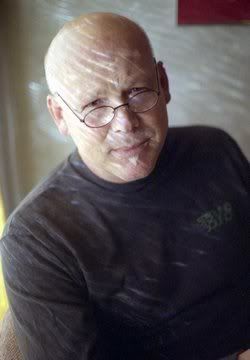
DD: I always tried to record at least one song by a friend of mine on every record. It’s kind of a tradition for me. The covers weren’t always songs by friends, but typically they were. I did a song of Mitch’s, too. And I’d always liked “Bad Reputation.” I felt like it had the right sentiments, as far as I’m concerned, for silly, angsty child-rock, and it was a song that Peter had done with the dB’s on Stands for Decibels. I’d become familiar with it while searching his catalog, looking for things for Marti, because Marti had recorded a couple of songs of his. And, plus, I’ve known Peter since he was in the 8th grade, and I like him. But I just liked the song, and it seemed to fit a hole I needed to fill in that record. The last song I wrote for EEE was “I Can Hear the River,” because I kept trying to sequence the record, and I needed something that was … well, I just needed another song! And I came home kinda frustrated, because the record just didn’t seem like it was done, but I’d spent all of my money, and I knew that even if it wasn’t done, it needed to be done. And that’s when I wrote “I Can Hear the River,” and Marti’s sister, Jonni, gave me the idea of using a gospel choir on it. So I contacted John P. Kee, and we threw that choir on there. Well, actually, we didn’t throw it on there! I went down there and recorded the whole thing in a day, knowing that the choir was going to come in at, like, four in the afternoon, and I sang my lead vocal with the choir and everything. There’s a really great film of it, but I haven’t seen it myself in a long, long time. But they shot the whole sequence, all of the choir stuff. They came in with the choir, and I sang it live, so my vocal’s right there with “Ëœem. It was really fun.
PD: Aside from “Praying Mantis,” if you had to be remembered for one song from the Enigma era, what would it be?
DD: Gosh, I don’t know. A song besides “Praying Mantis” that I’d want to have on my tombstone. (Leans away from the phone to speak to Marti) What’s an Enigma-era song that I give a fuck about?
PD: (Bursts out laughing)
DD: I like “Ëœem all, you know, but … I’ve gotta think about it for a second. Hold on, let me go get a copy of the collection, since I know that’s what you’re right about right now. What’s that? (Leans away from the phone again) Oh! Marti says “Million Angels Sigh.” I’m not entirely sure I want to be remembered for a suicide song, but … you know, I actually put together a big collection of all of my death songs a few years ago, trying to get my publishers to get something of mine on “Six Feet Under.” I couldn’t believe how many death songs I had! (Laughs) Okay, here’s the disc. So what’s on this record? (Mutters song titles as he goes through them) Well, “Million Angels Sigh” is on this record, so there you go. And … “Gimme Little Sign.” I can’t believe they put “Gimme Little Sign” on it. I didn’t even want them to hear it! I really didn’t! It was just kind of a throwaway joke that Marti and I did on a whim because the Horns were down there, and I didn’t intend for them to ever hear it.
PD: It’s a fun cover, though.
DD: Oh, it’s very fun. But that’s what I wanted it to be. That was back when they still had B-sides, and that’s just what it was going to be, but then they got a hold of it, and… (Trails off and goes back to examining the song titles) I think in some ways the song that … this is probably really stupid, but of the songs that are on this record, the song that I actually think is the best is … God, I’m just not really very good at superlatives, but I think I’d rather have people think of me in terms of a song like “Sweet Surrender” than a song like “Southside Girl.” Because, y’know, “Southside Girl” is another of those Arrogance-era songs … in fact, I think it was released in that very same mix as an Arrogance 45! So, yeah, I just think that “Sweet Surrender” has the combination of a slightly more grown-up aesthetic with just a little bit of the more jazzy stuff that I’ve really gotten into, and it’s a better combination from my point of view. I love “Heart in a Box,” and I do love “Million Angels Sigh,” but you can sit down at a piano and play “Sweet Surrender,” and it sounds pretty good … and it’s hard to sing “Million Angels” sigh by yourself. But then you’ve got “I Can Hear the River,” and … I like that song, but lyrically I don’t think it’s anywhere near as good as “Sweet Surrender.”
PD: I can accept that answer.
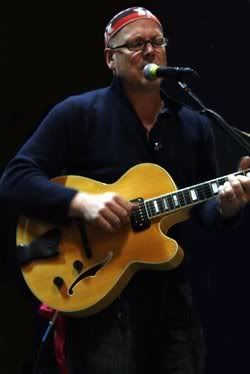
DD: There are a lot of great records that aren’t necessarily great songs, you know? They’re two different things, and neither one rules the other, so these people who talk about, “My projects are really song-driven,” well, sometimes that’s true and sometimes it’s not. Sometimes the sound is the most important part of it. I think a lot about what made R.E.M. great was the sound of what they were doing. If you broke it down and pulled it apart and just made piano sheet music, it would be kind of horrid, but as a performance and as a record and as a collection of sounds, it was fantastic. There are always different things that go into making good records.
PD: Of course, you realize that people will read that quote and say, “Spoken like a true producer.”
DD: Well, look, in some ways, I am, even though I would never … well, look, it doesn’t take a genius to know that many, many of the best songs ever written would never be hits, and many of the biggest hits are kind of heinous songs. That’s all I’m saying.
PD: I can’t argue with that. It’s more accurate today than ever.
DD: Oh, these days, there aren’t any good songs that are hits! It’s unbelievable how few great songs … or even quality songs … are played on the radio. I watch “Saturday Night Live,” and I can’t remember anything about the songs. The singer sounds great, the bass player’s great, they look cool, but I can’t remember a single word from the song, and I can’t hang onto any sort of melodic aspect of it. And assholes like Li’l Wayne out here, holding a guitar, it just makes you want to cry! It makes you want to run into your room, put your head under the pillow, and cry for the world, because it’s so shitty! And there are still lots of really talented, cool people out there, but the lowest common denominator aspect seems worse than ever, and you go back and listen to these bands that you thought were lame when you were a kid, and at least you can sing the song, you know? At least there’s something there to hang your hat on. I don’t get it. Explain it to me!
PD: If only I could. The extent of my radio listening these days is NPR.
DD: Oh, and you hear some great stuff on NPR.
PD: Definitely. We’ve got a local guy who has his own show every weeknight, and he spotlights lots of great new stuff that you just don’t get to hear anywhere else.
DD: That’s cool! What’s the station?
PD: It’s WHRV, 89.5 FM. His name’s Paul Shugrue, and the show’s called “Out of the Box.”
DD: Good title! That’s pretty cool, because very few NPR stations play any pop music at all. Our local station, which is here in Ohio, is all classical except on the weekends, when folk music sort of dominates. For the most part, though, if you get Teddy Thompson, it’s radical.
PD: If you check out the “Out of the Box” site, you can actually listen to archived shows online.
DD: An interesting thing we’ve done with the new record is that we didn’t send it to any radio stations or, in fact, it’s hardly even available on CD except at shows.
PD: I myself got it through eMusic.
DD: So you just got the music, then, without the package. The package has a little thing in it that explains the concept of the record, which is helpful. I should send you the real CD. Are you someone who still enjoys having the actual CD?
PD: Absolutely!
DD: I’ll do that, then. (Pauses) So … where are we?
Well, unfortunately, we’re at the end of our allotted time for this week. Don and I actually talked for so long that I’m splitting the piece into two parts, but that’s at least partially because it seemed inappropriate to talk at length about his production work in an interview inspired by a desire to praise his own music. So stay tuned for the upcoming sequel, where we discuss his experiences with Guadalcanal Diary, R.E.M., the Smithereens, the Connells, and … In Tua Nua?
You bet.





Comments